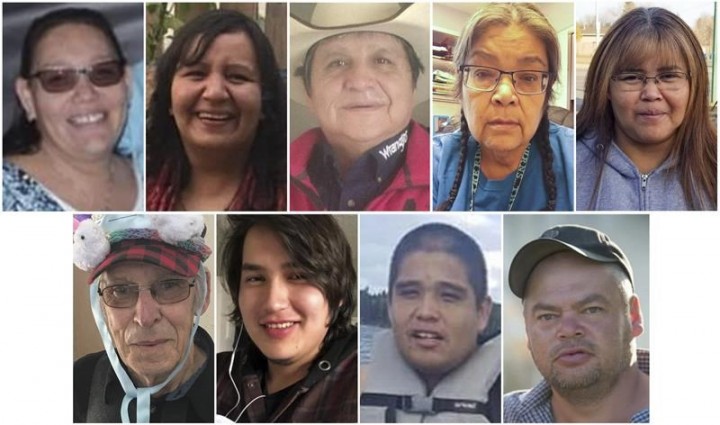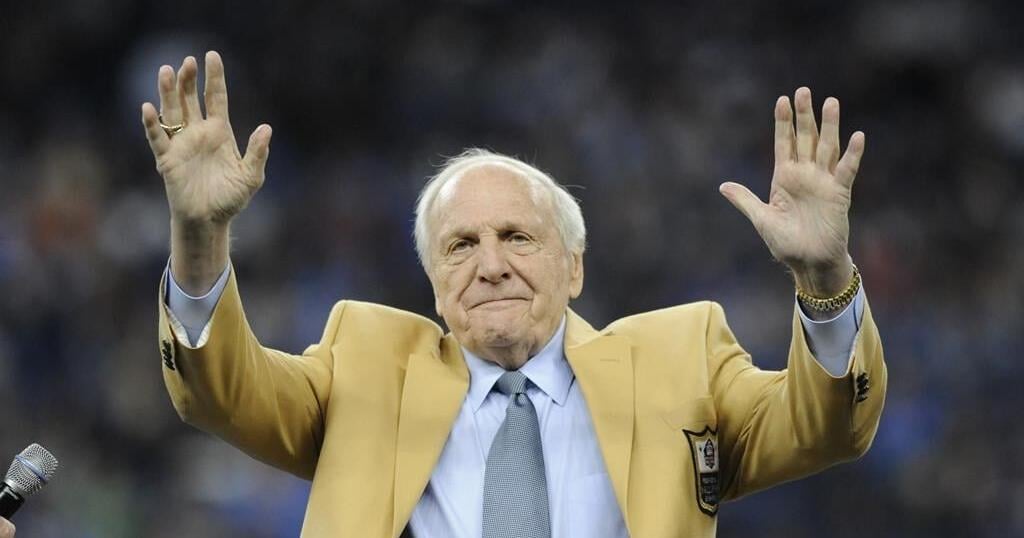A deadly stabbing rampage over the Labour Day weekend in rural Saskatchewan underscores a critical lack of social supports in Canada’s justice system, experts say.
RCMP have named Myles Sanderson, 32, as a suspect in Sunday’s attacks on the James Smith Cree Nation and nearby village of Weldon, northeast of Saskatoon, that left 10 people dead and 18 injured. His younger brother Damien Sanderson, who had also been named a suspect, was also found dead near one of the crime scenes Monday from wounds police said were not self-inflicted.
Myles Sanderson was taken into custody near the town of Rosthern, Sask., on Wednesday.
Darryl Davies, a criminology expert at Carleton University, said risk factors for violent crime are well understood in his field and Sanderson’s profile, as described in a February decision from the Parole Board of Canada, should have given off more warning signs.
“This person is like TNT, is going to explode any time,” he said.
Sanderson’s August 2021 statutory release from prison was revoked after four months because he didn’t communicate with his parole supervisor, according to the decision obtained by The Canadian Press.
The board described Sanderson’s violent criminal history as “concerning,” but decided to reinstate his release with a reprimand after concluding he “will not present an undue risk to society.”
Davies, who had a decades-long career as a parole officer, said the situation points to what he sees as chronic dysfunction in how the Canadian government and justice system approach preventing violent crime.
“Our justice system is in chaos at the moment.”
Davies said too much money is spent on funding police forces and the correctional system and too little on social and economic supports for people who grew up around violence, poverty and addiction.
The Parole Board said Wednesday that it would be convening a joint investigation, along with the Correctional Service of Canada, to fully understand the events surrounding Sanderson’s statutory release and supervision in the community.
“The purpose of the joint (investigation) is to analyze all of the facts and circumstances around this case, including whether laws, policies and protocols were followed, and to identify any recommendations and corrective measures,” the board said in an emailed statement.
It said the two agencies would also ensure the probe does not interfere with the RCMP’s investigation into the slayings and they are committed to publicly sharing the results, as well as any measures that result from its recommendations.
Federal Public Safety Minister Marco Mendicino told reporters Tuesday he agrees the board’s decision-making process in general should be examined.
He cautioned against trying to find an easy explanation.
“There’s a propensity sometimes to try to distil it to a simple cause,” he said in Vancouver. “I think we should resist that temptation and rather, right now, focus our efforts on doing everything we can to support the community at this difficult time.”
Davies said better funding of schools, housing and addiction supports would go a long way to preventing violence.
In addition to raising concerns about Sanderson’s history of domestic violence and use of weapons, the Parole Board document also detailed a childhood marked by violence, neglect and substance abuse.
Sanderson began drinking and using marijuana at age 12, it said, and noted many of his crimes as an adult happened when he was intoxicated.
Steve Joordens, a psychology professor at the University of Toronto’s Scarborough campus, agreed more social supports are needed for children experiencing hardship and for people convicted of crimes.
Joordens said people who commit mass violent attacks generally have reached a point of detachment from others and feel a lack of empathy for victims. That can often be traced back to trauma and isolation from others that’s turned into anger, he added.
“It’s a hard thing to undo. And it’s certainly not going to be undone simply by sort of letting people into society and hoping they reintegrate and they make some friends and everything works out,” he said, adding parole conditions that incorporate elements of social connection and support could help.
“If we don’t change anything about the circumstances, there’s probably a good chance they’re going to fail again, where failure is committing whatever crime they committed.”
Joordens said the situation also speaks to challenges the justice system faces around predicting violent behaviour.
“It’s what every parole board worries about, I’m sure: You let somebody on parole and that person will go do something absolutely horrific,” he said.
“But probably the vast majority of the time, nothing like that happens.”
The parole document said Sanderson grew up between his father’s home in an urban centre and his grandparents’ house on a First Nation and that there was violence and abuse in both households.
Sol Mamakwa, an Indigenous legislator and deputy leader of the Ontario NDP, said the role of historic and ongoing oppression of Indigenous people in Canada needs to be acknowledged in the aftermath of the slayings.
“Oppression, colonialism has become a way of life for Indigenous people. I think that’s why we need to be able to start acknowledging the past and move forward together as a province, as a country,” he said.
“It’s going to take some time, but I think to learn about the history, acknowledge that — I think that’s where change starts.”
This report by The Canadian Press was first published Sept. 7, 2022.
— with files from Angela Amato in Edmonton.
Holly McKenzie-Sutter, The Canadian Press
Related




























